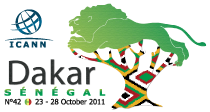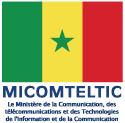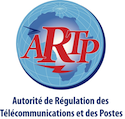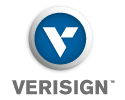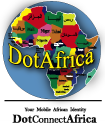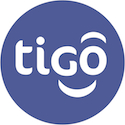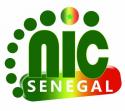
General Information
|
AIRPORT AND TRANSPORTATION
Dakar-Yoff-Léopold Sédar Senghor International Airport (DKR) is situated 6 miles (9km) from Dakar.
Facilities at the airport include a bureau de change, restaurants, duty-free shopping and a tourist help desk.
Airport Meet and Greet Services, and hotel transfers will be provided for all ICANN meeting attendees.
The city of Dakar is set in a tropical climate situation with two distinct seasons. The rainy season generally spans from May to November. Heavy downpours and wind peak in August with temperatures averaging at 27°C. The dry season runs from December through to April, with little to no rain fall and hot, humid Harmattan winds.
Senegal's official currency is the West African CFA (XOF) devided into 100 centimes. ATMs and banking facilites are available in Dakar, but they are limited in the rest of the country.
Credit cards: American Express is the most widely accepted, however its use is limited to major establishments that cater to tourism. Always carry enough cash with you to pay for meals, etc.
Travellers Cheques: Travellers cheques can be cashed in Dakar.
Caution should be exercised at ATM machines when withdrawing money from banks. Be cautious about who sees you withdrawing cash and where you withdraw it.
Credit card fraud is not uncommon. Ensure your credit card remains in full view while payments are processed and monitor your bank statements for suspicious transactions during and after your travel.
Whether you're looking for a simple place to dine on Senegalese specialties or you'd rather mingle with the city's cosmopolitan set over French or international cuisine, Dakar has plenty of options. Take advantage of the city's coastal location and sample the traditional dishes of Senegal, Cape Verde and Bissau-Guinea for variations on the West African preparations of the local seafood.
Electrical current is 220 volts, 50Hz. Round two-pin attachment plugs are in use.
Dakar was once considered a major city under the French Empire, and in keeping with its French Colonial heritage, French is Senegal's official language. Wolof is the most widely spoken national language spoken by more than 80% of the population. There are five other national languages including: Serere, Diola, Haal Puular, Soninke and Mandingue. Many more tribal dialects are spoken across Senegal.
The international dialling code for Senegal is +221. The outgoing code is 00 followed by the relevant country code (e.g. 0027 for South Africa). No city/area codes are required. Senegal's telephone system is one of the most developed in Africa, and there are numerous telephone centres for making both local and international calls. Mobile phone operators provide GSM 900 cell phone coverage. Cybercafes offer Internet connections in the main cities.
SAFETY AND SECURITY
Dakar is a venue for major conferences and presents a low risk to business travelers. However, as with travel to any major city, it is important to take responsibility for your personal safety and exercise common sense security precautions at all times.
The primary security concern for delegates to the ICANN Meeting in Dakar is street crime. As in many cities, scams targeting tourists are not uncommon.
Delegates should observe common sense security precautions and not venture outside the main business and tourist areas unless accompanied by a trusted local guide.
The political situation in Senegal is generally calm and stable, however, strikes and demonstrations do occur, particularly in Central Dakar and around the University. Some can turn violent. Demonstrations are usually announced a day or two in advance in the local newspapers and on local radio stations but they can also start on very short notice. You should be alert to this risk and avoid all demonstrations and protests.
WHILE IN PUBLIC
Do not carry or display large sums of money, expensive jewelry, valuable watches. Carry only what is needed while traveling outside the hotel, and be alert to the possibility of street crime.
When walking in downtown Dakar or at the airport, do not become distracted by people who attempt to engage you in conversation. If approached on the street by an individual or a group, be polite but wary and exercise caution. Scams of various kinds targeting tourists are not uncommon.
The beach-side roads, restaurants and clubs along the coast road (or Corniche) are common trouble spots for scams and street crime. Exercise particular caution in these areas. Consider avoiding the coast roads and downtown after dark or restrict your travel to well lit establishments that offer some form of security presence.
Delegates should carry a photocopy of their passport (ID and Senegal visa page) at all times.
Delegates should consider registering with their embassy or consulate in Senegal and carry with them the contact phone numbers for their embassy in case of an emergency.
LOCAL LAWS
Delegates should familiarize themselves with all local laws and restrictions enforced in Senegal, which might affect their activities.
For example:
- Senegalese authorities can ask to see personal identification at any time. Failure to produce identification when requested may result in detention. You should carry personal identification at all times.
- Possession or trafficking of illegal drugs can result in severe penalties, including long jail sentences.
- Penalties for driving under the influence of alcohol are severe and include imprisonment.
- Homosexual acts are illegal and penalties include imprisonment.
Further references:
http://www.smartraveller.gov.au/zw-cgi/view/Advice/Senegal#Local_Laws
http://travel.state.gov/travel/cis_pa_tw/cis/cis_1013.html#criminal_penalties
BANK TRANSACTIONS
Caution should be exercised at ATM machines when withdrawing money from banks. Be cautious about who sees you withdrawing cash and where you withdraw it.
Credit card fraud is not uncommon. Ensure your credit card remains in full view while payments are processed and monitor your bank statements for suspicious transactions during and after your travel.
TRANSPORTATION
In general, delegates should use ICANN arranged shuttle buses or taxis ordered by hotels or restaurants.
Political protests and street demonstrations are frequent In Dakar, and may become violent. Do not stop to watch or photograph them. In the event of unrest, return to your hotel or the ICANN Meeting venue immediately and remain there until the situation has stabilized.
In general, the more remote the area, the greater the potential threat to your safety. Road travel outside the main city areas of Dakar is not recommended due to security and health risks.
HOTEL SECURITY
Hotels for delegates have been carefully selected. However, delegates are advised:
Never give out your room number or invite strangers to your room.
Never leave valuable property unattended in restaurants, swimming pool area, etc.
Always use safety lock on the door, even during the daytime.
Always use room safe for valuables, or use lockable storage for valuables at the front desk, but make sure they issue a receipt for your items.
ADDITIONAL REFERENCES
Several countries have published general travel security advisories for Senegal.
Australian Department of Foreign Affairs
New Zealand Ministry of Foreign Affairs and Trade
UK Foreign & Commonwealth Office
US Department of State
US Embassy in Dakar
CDC Health Information for Travelers to Dakar
Overseas Security Advisory Council Senegal Safety Report (2011)
Of additional interest:
Wiki Travel
Lonely Planet
Word Travels
Tipping: Larger hotels and restaurants usually include a service charge of 10 to 15% . Taxi drivers are not usually tipped.
